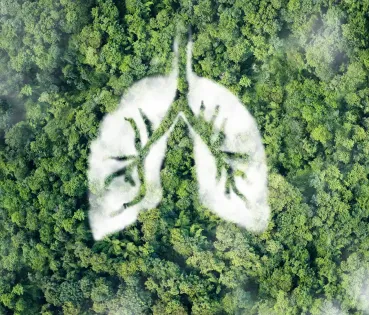
Would reducing meat consumption make us more sustainable?
Have you ever wondered how much pollution is caused by the meat you eat? From the cattle lot to your table, the meat industry is one of the sectors that causes the most damage to our planet.
We all know that a really good, rare, steak is unbeatable. And this also applies to ribs, pork belly or Wiener schnitzel. Meat consumption, regardless of its nutritional value, is one of the most widespread cultural habits in most of the world's cultures. Traditionally, the consumption and production of meat used to be linked to a series of cultural rituals, marking the passing of the seasons or important dates on the calendar.
However, the unbridled consumption and mass production seen in current societies has a huge environmental impact. From greenhouse gas (GHG) emissions to intensive water use and deforestation, meat production contributes significantly to environmental degradation.
The huge carbon footprint
A recent report by the Food and Agriculture Organisation of the United Nations (FAO) reveals that meat production is responsible for approximately 14.5% of all anthropogenic GHG emissions. This is mainly due to methane emissions from the enteric fermentation of ruminants such as cows, as well as nitrous oxide released from manure and the use of nitrogen fertilisers to grow feed crops.
In addition, beef production is particularly carbon intensive. According to a 2023 study from Oxford University, producing one kilogram of beef generates between 20 and 60 kilograms of CO2, with pork and chicken emitting significantly less, with figures of approximately 7 and 6 kg of CO2 per kilogram, respectively.
Resource consumption
But the impact of meat production is not restricted to GHG emissions. It also consumes enormous amounts of water. According to the Water Footprint Network, it takes approximately 15,415 litres of water to produce one kilogram of beef. This intensive water use includes both the irrigation of crops used to feed livestock and the water animals drink during their lifetime.
Furthermore, the amount of water required is compounded by the deforestation linked to beef production. Large tracts of rainforest, especially in the Amazon, are cleared to create pastures for cattle to graze or to grow soybeans for animal feed. A study published in 2023 in the journal Nature highlights that 80% of deforestation in the Amazon is due to cattle ranchers. The destruction of forests for industrial activities is not only negative because of the carbon emissions it generates, but also because of the loss of biodiversity and the degradation of natural ecosystems, significantly reducing local flora and fauna.
The plant-based or flexitarian diet
Reducing meat consumption is one of the most effective measures to shrink your environmental footprint. Even if only partially, increasing the intake of plant-based products (and, whenever possible, locally sourced and/or organic farming) can significantly reduce GHG emissions and the consumption of natural resources.
However, this doesn’t necessarily mean removing meat from our diet. Its nutritional value can be very beneficial. Whenever possible, though, it is better to choose animal products from a sustainable producer who practices extensive grazing.




